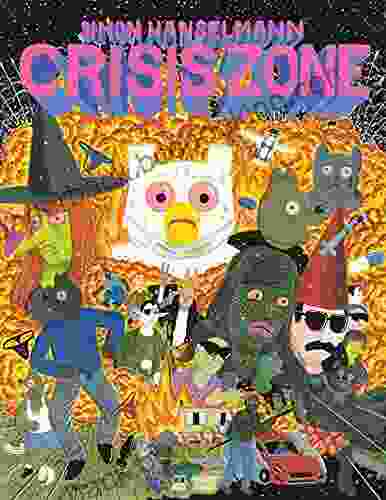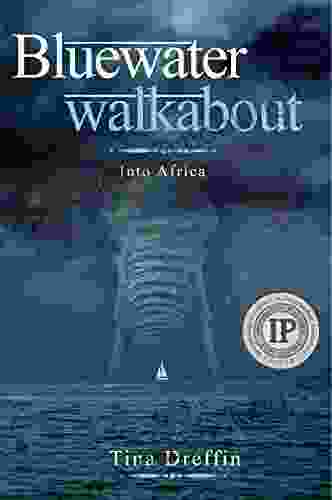Mastering the Art of Effective Communication: Unveiling the Secrets of Diplomacy and Tact

Effective communication is a cornerstone of both personal and professional success. The ability to convey our thoughts and ideas clearly, respectfully, and persuasively can open doors, build relationships, and resolve conflicts. In today's fast-paced and interconnected world, mastering the art of diplomacy and tact has become more crucial than ever.
In this comprehensive guide, we delve into the principles and strategies that underpin effective communication, empowering you to navigate conversations with confidence and finesse. Discover the secrets of diplomacy and tact, and unlock the potential for transformative relationships, harmonious workplaces, and personal growth.
4.4 out of 5
| Language | : | English |
| File size | : | 2839 KB |
| Text-to-Speech | : | Enabled |
| Screen Reader | : | Supported |
| Enhanced typesetting | : | Enabled |
| Word Wise | : | Enabled |
| Print length | : | 98 pages |
| Lending | : | Enabled |
The Importance of Diplomacy and Tact
Diplomacy and tact are essential qualities for anyone who wants to communicate effectively. Diplomacy involves being considerate of others' feelings and perspectives, even when we disagree. Tact is the ability to say what needs to be said without causing offense or creating conflict.
When we communicate with diplomacy and tact, we build trust and rapport with others, making them more receptive to our message. We can resolve conflicts more effectively, avoid misunderstandings, and create a positive and productive work environment.
Principles of Effective Communication
Effective communication involves adhering to certain fundamental principles:
- Clarity: Express your thoughts and ideas in a way that is easy to understand.
- Conciseness: Get to the point and avoid unnecessary details or jargon.
- Respect: Listen attentively to others and treat them with dignity.
- Empathy: Understand and consider the perspectives and emotions of others.
li>Honesty: Be truthful and avoid misleading or deceiving others.
Strategies for Diplomatically Handling Difficult Situations
Inevitably, we encounter difficult situations in our communication. Here are some strategies for handling them with diplomacy and tact:
- Stay calm: It's easy to react emotionally in difficult situations, but it's important to remain composed.
- Listen actively: Give the other person your full attention and try to understand their perspective.
- Avoid personal attacks: Focus on the issue at hand and avoid making accusations or blaming others.
- Use "I" statements: Express your feelings and needs using "I" statements to avoid sounding accusatory.
- Seek common ground: Look for areas of agreement and build on them to find solutions.
The Art of Tactful Feedback
Feedback is an essential part of communication, but it can be challenging to deliver without causing offense. Follow these tips for giving tactful feedback:
- Start with a positive note: Begin by acknowledging the person's strengths or efforts.
- Focus on specific behaviors: Avoid generalizing or making vague criticisms.
- Use constructive language: Frame your feedback as suggestions for improvement rather than as accusations.
- Be timely: Give feedback promptly to avoid it becoming a larger issue.
- Choose the right setting: Give feedback in private to maintain confidentiality and minimize embarrassment.
Communicating with Diplomacy and Tact in the Workplace
Effective communication is essential in the workplace, where it can foster collaboration, improve productivity, and resolve conflicts. Here are some tips for communicating with diplomacy and tact:
- Understand your audience: Tailor your communication style to the person or group you're addressing.
- Consider the context: Be mindful of the setting and purpose of the communication.
- Use appropriate language: Avoid using slang or offensive terms that could be misinterpreted.
- Respect boundaries: Be mindful of time constraints and personal space when communicating with others.
- Maintain a positive attitude: A positive and enthusiastic demeanor can make a significant difference in communication.
Mastering the Art of Diplomacy and Tact
Mastering the art of diplomacy and tact is an ongoing journey of self-discovery and continuous improvement. By practicing these principles and strategies, you can develop the skills necessary to communicate effectively, build strong relationships, and achieve your goals.
The following tips can help you on your journey:
- Be self-aware: Understand your own communication style and tendencies.
- Seek feedback: Ask trusted friends, family, or colleagues for feedback on your communication skills.
- Practice active listening: Pay attention to what others are saying, both verbally and nonverbally.
- Develop empathy: Try to understand the perspectives and feelings of others.
- Stay up-to-date: Keep abreast of current communication trends and best practices.
In today's rapidly changing world, the ability to communicate with diplomacy and tact is more valuable than ever before. By embracing the principles and strategies outlined in this guide, you can unlock your potential as an effective communicator.
Whether you're in the workplace, engaging in social interactions, or navigating challenging conversations, diplomacy and tact can empower you to build strong relationships, resolve conflicts, and achieve your goals. Remember, mastering the art of diplomacy and tact is a continuous journey of learning and improvement. Embrace the challenge and watch your communication skills soar to new heights.
4.4 out of 5
| Language | : | English |
| File size | : | 2839 KB |
| Text-to-Speech | : | Enabled |
| Screen Reader | : | Supported |
| Enhanced typesetting | : | Enabled |
| Word Wise | : | Enabled |
| Print length | : | 98 pages |
| Lending | : | Enabled |
Do you want to contribute by writing guest posts on this blog?
Please contact us and send us a resume of previous articles that you have written.
 Book
Book Novel
Novel Page
Page Chapter
Chapter Text
Text Story
Story Genre
Genre Reader
Reader Library
Library Paperback
Paperback E-book
E-book Magazine
Magazine Newspaper
Newspaper Paragraph
Paragraph Sentence
Sentence Bookmark
Bookmark Shelf
Shelf Glossary
Glossary Bibliography
Bibliography Foreword
Foreword Preface
Preface Synopsis
Synopsis Annotation
Annotation Footnote
Footnote Manuscript
Manuscript Scroll
Scroll Codex
Codex Tome
Tome Bestseller
Bestseller Classics
Classics Library card
Library card Narrative
Narrative Biography
Biography Autobiography
Autobiography Memoir
Memoir Reference
Reference Encyclopedia
Encyclopedia Steve Biko
Steve Biko Tim Fortner
Tim Fortner Ruy Castro
Ruy Castro Stephen Joseph
Stephen Joseph Pete Fisher
Pete Fisher Rachael Chapman
Rachael Chapman Mark M Meerschaert
Mark M Meerschaert Sally Hogshead
Sally Hogshead Ruby Hamad
Ruby Hamad Ryan W Quinn
Ryan W Quinn Turid Rugaas
Turid Rugaas Paramhansa Yogananda
Paramhansa Yogananda Mark W Mcginnis
Mark W Mcginnis Linda Lajterman
Linda Lajterman Marc Thoma
Marc Thoma Sue Tabashnik
Sue Tabashnik Neil Fontaine
Neil Fontaine Matthew Hickman
Matthew Hickman Tom Dodd
Tom Dodd Peter Harry Brown
Peter Harry Brown
Light bulbAdvertise smarter! Our strategic ad space ensures maximum exposure. Reserve your spot today!

 Paulo CoelhoOne Woman's Courageous Journey of Intuition, Passion, and Purpose to Build an...
Paulo CoelhoOne Woman's Courageous Journey of Intuition, Passion, and Purpose to Build an... Devin RossFollow ·13.2k
Devin RossFollow ·13.2k Nathan ReedFollow ·14k
Nathan ReedFollow ·14k Clay PowellFollow ·5.5k
Clay PowellFollow ·5.5k Kevin TurnerFollow ·9.5k
Kevin TurnerFollow ·9.5k Dean ButlerFollow ·11.8k
Dean ButlerFollow ·11.8k Jonathan FranzenFollow ·4.4k
Jonathan FranzenFollow ·4.4k Finn CoxFollow ·6.1k
Finn CoxFollow ·6.1k Vic ParkerFollow ·16.1k
Vic ParkerFollow ·16.1k

 E.M. Forster
E.M. ForsterBluewater Walkabout: Into the Pacific
An Unforgettable...

 Joseph Foster
Joseph FosterUnlock the Secrets of Standardized Test Success with Test...
Are you tired of struggling with standardized...

 Joe Simmons
Joe SimmonsUnlock Learning with Flash Cards for Kindergarten:...
Ignite a Passion for...

 Raymond Parker
Raymond ParkerJourney into the Enchanting World of "The Heart Kingdom"...
A Timeless Tale of Love,...
4.4 out of 5
| Language | : | English |
| File size | : | 2839 KB |
| Text-to-Speech | : | Enabled |
| Screen Reader | : | Supported |
| Enhanced typesetting | : | Enabled |
| Word Wise | : | Enabled |
| Print length | : | 98 pages |
| Lending | : | Enabled |














